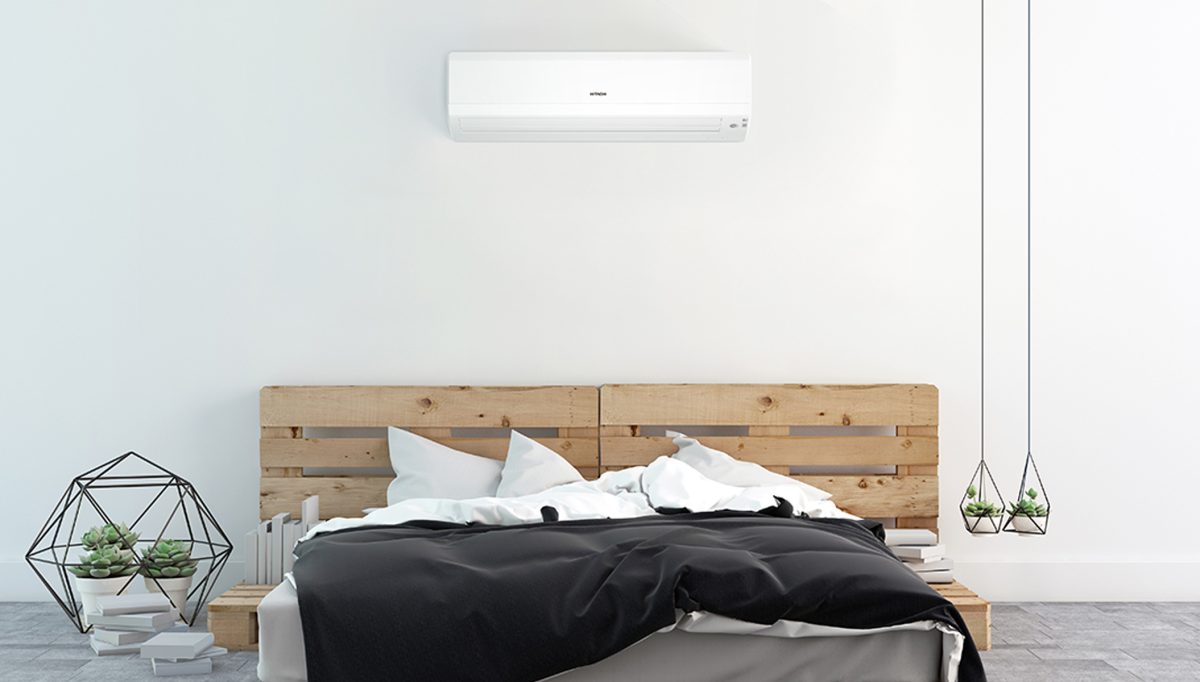A restful night’s sleep is essential for overall well-being and productivity. Many factors contribute to the quality of our sleep, and one often overlooked but significant factor is the ambient temperature of our sleeping environment. In this blog, we’ll explore the profound impact that air conditioning (AC) can have on improving sleep quality and how maintaining an optimal sleeping temperature can lead to a more rejuvenating and satisfying sleep experience.
The Science of Sleep Temperature
Understanding the science behind sleep temperature is crucial in appreciating the role of air conditioning in enhancing sleep quality. The body’s core temperature naturally decreases as it prepares for sleep, and a cooler environment aids in facilitating this process. The ideal sleep temperature is generally considered to be between 60 and 67 degrees Fahrenheit (15-20 degrees Celsius), promoting the body’s natural circadian rhythm and the release of sleep-inducing hormones.
Regulation of Body Temperature
Our bodies are designed to regulate internal temperature, but external factors, such as room temperature, play a vital role in supporting or hindering this process. When the room is too hot, the body struggles to cool down, leading to discomfort and restlessness. AC helps create a comfortable sleep environment by regulating the temperature, ensuring that the body can efficiently reach and maintain the optimal sleep temperature.
Improved Sleep Onset
One of the primary benefits of using air conditioning for better sleep quality is the improvement in sleep onset. Falling asleep becomes more accessible in a cool and comfortable environment, allowing individuals to transition from wakefulness to sleep more effortlessly. AC helps create the ideal conditions for a swift and smooth entry into the various sleep stages, contributing to a more restful and restorative night’s sleep.
Reducing Sleep Disruptions
Maintaining a consistent and comfortable temperature throughout the night is essential for minimizing sleep disruptions. Sudden temperature changes can trigger awakenings, disrupting the sleep cycle and preventing individuals from reaching the deeper, more rejuvenating stages of sleep. Air conditioning provides a stable and controlled sleep environment, reducing the likelihood of temperature-related disturbances and promoting uninterrupted, quality sleep.
Managing Humidity Levels
In addition to temperature control, air conditioning also plays a crucial role in managing humidity levels. Excessive humidity can lead to discomfort, making it difficult for individuals to relax and fall asleep. AC helps maintain an optimal balance, creating a cool and dry atmosphere that is conducive to restful sleep. By preventing excessive sweating and discomfort, air conditioning contributes to an overall improvement in sleep quality.
Allergy and Asthma Relief
Air conditioning systems often come equipped with filters that help remove allergens and pollutants from the air. This is particularly beneficial for individuals with allergies or asthma, as cleaner air can lead to improved respiratory function during sleep. Breathing in clean, filtered air promotes better oxygenation, reducing the likelihood of snoring and other breathing-related sleep disturbances.
Enhanced Comfort for Deeper Sleep
Comfort is a key factor in achieving deeper and more restorative sleep. Air conditioning creates a comfortable sleep environment by regulating temperature, reducing humidity, and improving air quality. As a result, individuals are more likely to experience longer periods of undisturbed sleep, allowing them to progress through the various sleep cycles and wake up feeling refreshed and revitalized.
Tailoring AC Settings for Optimal Sleep
To maximize the benefits of air conditioning for sleep quality, it’s essential to tailor the settings to individual preferences. Experimenting with different temperature settings and finding the right balance between coolness and comfort is crucial. Additionally, utilizing programmable thermostats can help create a seamless transition from daytime to nighttime temperatures, ensuring the bedroom is optimally prepared for a good night’s sleep.
In conclusion, air conditioning plays a pivotal role in enhancing sleep quality by creating a comfortable and controlled sleep environment. From regulating body temperature and reducing sleep disruptions to managing humidity levels and providing allergy relief, the benefits of AC extend far beyond simple climate control. Investing in a quality air conditioning system and optimizing its settings can lead to a more restful and rejuvenating sleep experience, ultimately contributing to improved overall well-being and daily productivity. So, to let your dreams be as cool as your room temperature for a night of undisturbed and refreshing sleep, call Costa Mechanical to install you cooling system today.

